BREAKING NEWS: 8 Killed, 2,750 Wounded, Mostly Hezbollah Terrorists, as Pagers They Use to Communicate Explode Across Lebanon
Blasts across Beirut occurred as tensions between Lebanon and Israel at fever pitch. 'Pagers belonging to employees of various Hezbollah units and institutions exploded.'
By Perkin Amalaraj & David Averre & Wiliam Hunter
September 17, 2024
Thousands of people have been wounded in Lebanon this afternoon after pagers used by Hezbollah fighters to communicate exploded, so far killing eight, including two girls aged eight and ten.
The wave of sudden and unexpected detonations, which began around 3.45pm local time (1345 GMT) and lasted roughly an hour, has so far maimed over 2,750 Hezbollah members and civilians, giving way to widespread panic and chaotic scenes across Beirut’s southern suburbs, the Bekaa Valley and southern Lebanon.
Victims were seen sporting significant wounds as they lay on the ground surrounded by terrified bystanders in images shared to social media and broadcast by Lebanese and Israeli networks.
Yet more harrowing clips taken inside Lebanese hospitals showed how some unfortunate victims sustained massive head injuries, gaping wounds in their legs and abdomen, or had their hands blown off by the powerful explosions.
At least two Hezbollah fighters - one of whom is the son of Lebanese parliament member Ali Ammar - were confirmed dead by multiple security sources and a family member, according to AFP.
An eight-year-old girl from the the Bekaa Valley, and a 10-year-old daughter of a Hezbollah member, were also killed in the explosions.
A spokesperson for the proscribed terror group has since said that Hassan Nasrallah, the group's chief, was not harmed in the blasts.
Hezbollah says that Israel is 'fully responsible' for the simultaneous explosion, warning that the nation would be punished.
'We hold the Israeli enemy fully responsible for this criminal aggression,' the group said in a statement, adding that Israel 'will certainly receive its just punishment for this sinful aggression'.
The Israeli military declined to comment on the incidents.
The stunning incident saw scores of Hezbollah members severely injured throughout southern Lebanon and in its capital Beirut
This is the moment a pager exploded in a supermarket, blowing its owner (bottom left) to the ground and causing significant injuries
An image grab taken from a UGC video posted on social media on September 17, 2024, shows men covered in blood in Beirut's southern suburbs after dozens of Hezbollah group members were injured when their pagers exploded
Pagers used by Hezbollah members for vital communications exploded this afternoon, injuring hundreds
A police officer inspects a car in which a hand-held pager exploded, in Beirut, Lebanon, Tuesday, Sept. 17, 2024
Police officers inspect a car inside of which a hand-held pager exploded, Beirut, Lebanon, Tuesday, Sept. 17, 2024
The remnants of what is believed to be a pager carried by a Lebanese militant that detonated earlier today
Lebanese soldiers and Hezbollah members gather outside a hospital where injured people were being transported, following an incident involving Hezbollah members' wireless devices in Dahieh, Beirut, south Lebanon, 17 September 2024
The terror group said in a second statement:
'After examining all the facts, current data, and available information about the sinful attack that took place this afternoon, we hold the Israeli enemy fully responsible for this criminal aggression that targeted civilians too.'
It added it would continue to support 'Palestinian resistance' and that the 'treacherous and criminal enemy will certainly be punished for this aggressive act.'
The Lebanese government, meanwhile, condemned the pager explosions as 'criminal Israeli aggression.'
Prime Minister Najib Mikati said in a cabinet meeting today, following the incidents, that the attack was 'criminal Israeli aggression, which constitutes a serious violation of Lebanese sovereignty and a crime by all standards.'
Information minister Ziad Makary said the government has contacted the United Nations to 'hold them accountable for this continuing crime.'
UN spokesperson Stéphane Dujarric has since described the developments across Lebanon as 'extremely concerning', adding:
'We deplore the civilian casualties that we have seen. We cannot underscore enough the risks of escalation in Lebanon and in the region.'
Lebanon's health minister Firas Abiad subsequently said the death toll had climbed to eight, while Iranian news agencies confirmed that Iran's ambassador to Lebanon, Mojtaba Amani, was injured in one blast, and is being treated in hospital.
The shocking incident constitutes the single largest intelligence breach in the militant outfit's history, an official said, with speculation mounting that the technology was somehow hacked or sabotaged by Israeli security services.
One source close to Hezbollah told AFP the incident came as a direct result of an 'Israeli breach' of its communications.
A different official told AP on condition of anonymity that the cause of the explosions was likely the lithium batteries that power the pagers, which can catch on fire when overheated.
The Lebanese government condemned the pager explosions as 'criminal Israeli aggression'
Lebanese citizens have swarmed around hospitals for hours following the incident
Friends and relatives of injured people arrive at the American University of Beirut Medical Center (AUBMC) after an incident involving Hezbollah members' wireless devices in Beirut, Lebanon
'Pagers belonging to employees of various Hezbollah units and institutions exploded,' an official statement from the Iran-backed militant group said, adding that the blasts 'killed a girl and two of our brothers'.
Hezbollah said it was 'conducting a wide-ranging security and scientific probe' into the causes of the 'simultaneous' blasts, without mentioning Israel.
Earlier this year, Hezbollah's leader Hassan Nasrallah urged members of his organisation to revert to using a new brand of pagers for vital communications, reasoning that modern smartphones would be more susceptible to cyber attacks by Israeli forces.
But just like mobile phones and many other consumer electronics, pagers also rely on rechargeable lithium batteries to function.
The battery fires can burn up to 590 degrees celsius (1,100 F) when ignited.
There has yet to be any official confirmation on what caused the pagers to detonate in unison.
But Lebanese military sources have suggested that the devices were detonated as part of an Israeli attack.
It is possible that Israeli forces or some other actor could have hacked these devices and remotely overcharged the battery, triggering a thermal runaway.
One-way pagers are passive receivers and so cannot be tracked, but when a message is sent it activates every pager transmitter in the area.
A man donates blood under a tent in Beirut's southern suburb on September 17, 2024 following the series of explosions across Lebanon
Lebanon's crisis operations centre, which is run by the health ministry, asked all medical workers to head to their respective hospitals to help cope with the massive numbers of wounded coming in for urgent care
The Lebanese Red Cross said more than 50 ambulances and 300 emergency medical staff were dispatched to help in the evacuation of victims
By hijacking the broadcast signal, an adversary could have conceivably infected every single pager on the network simultaneously.
A virus could have been implanted into the Hezbollah pager network and allowed to remain dormant on the devices until it had spread widely.
This malware may have been remotely triggered or activated on a pre-programmed timer.
Israeli officials are yet to comment.
Edward Snowden, infamous for leaking classified material from the US' National Security Agency, said he believed the incident was 'not a hack.'
'As information comes in about the exploding beepers in Lebanon, it seems now more likely than not to be implanted explosives, not a hack', he said on X.
He added: 'Why? Too many consistent, very serious injuries. If it were overheated batteries exploding, you'd expect many more small fires & misfires.'
Lebanon's National News Agency (NNA) said 'tens of injured have been taken to hospital after the handheld pagers system was detonated using advanced technology' and relayed urgent calls from hospitals in the country's south for people to donate blood.
At Mt. Lebanon hospital, a Reuters reporter saw motorcycles rushing to the emergency room, where people with their hands bloodied were screaming in pain.
Similar scenes were captured by photographers outside the American University of Beirut Medical Centre.
The head of the Nabatieh public hospital in the south of the country, Hassan Wazni, told Reuters that around 40 wounded people were being treated at his facility. The wounds included injuries to the face, eyes and limbs.
Lebanon's crisis operations centre, which is run by the health ministry, asked all medical workers to head to their respective hospitals to help cope with the massive numbers of wounded coming in for urgent care.
It also stressed that health care workers should not use pagers.
The Lebanese Red Cross said more than 50 ambulances and 300 emergency medical staff were dispatched to help in the evacuation of victims.
Lebanese citizens have begun donating blood in their droves, with pop-up blood drives being seen near Beirut's main hospitals.
The incident comes at a time of heightened tensions between Lebanon and Israel.
The Lebanese militant group Hezbollah and Israeli forces have been clashing near-daily for more than 11 months against the backdrop of war between Israel and Hezbollah ally Hamas in Gaza.
The clashes have killed hundreds in Lebanon and dozens in Israel and displaced tens of thousands on both sides of the border. On Tuesday, Israel said that halting Hezbollah's attacks in the north to allow residents to return to their homes is now an official war goal.
Israel has killed Hamas militants in the past with booby trapped cellphones and it's widely believed to have been behind the Stuxnet computer virus attack on Iran's nuclear program in 2010.
The sudden explosions across southern Lebanon this afternoon come hours after an Israeli strike on Lebanon killed three people, the health ministry said.
Israeli forces have traded near-daily fire with the Iran-backed Lebanese group since its ally Hamas launched the October 7 attacks on Israel, triggering the war in Gaza.
The health ministry said an 'Israeli enemy strike' on the border village of Blida killed 'three people and wounded two', without specifying if they were fighters or civilians.
Israel's military said its air force 'eliminated three terrorists' from Hezbollah who were at a 'terrorist infrastructure site' in the Blida area.
Hezbollah did not immediately announce any fighters had been killed, but claimed a series of attacks on Israeli troops and positions near the border on Tuesday.
Civil Defence first-responders carry a wounded man whose handheld pager exploded at al-Zahraa hospital in Beirut, Lebanon, Tuesday, Sept. 17, 2024
Ambulances arrive to American University of Beirut Medical Centre in the wake of the explosions
Doctors and bystanders await the arrival of victims injured by exploding pagers
People gather outside a hospital, as more than 1,000 people, including Hezbollah fighters and medics, were wounded on Tuesday when the pagers they use to communicate exploded across Lebanon, according to a security source, in Beirut, Lebanon September 17, 2024
Smoke rises from an Israeli airstrike on the village of Blida in southern Lebanon, as seen from an undisclosed location in the Upper Galilee, northern Israel, 17 September 2024
The Israeli Iron Dome air defense system fires to intercept an attack from Lebanon over the Galilee region, near Kiryat Shmona, as seen from the Israeli-annexed Golan Heights, Tuesday, Sept. 17, 2024
The NNA reported several Israeli attacks in the south of the country.
The latest deaths came hours after Israeli Prime Minister Benjamin Netanyahu's office said the political-security cabinet had 'updated the goals of the war' to include 'the safe return of the residents of the north to their homes'.
Almost a year of cross-border violence has displaced tens of thousands of people on both sides of the border.
Israeli Defence Minister Yoav Gallant said on Monday that 'military action' was the 'only way left to ensure the return of Israel's northern communities'.
The violence has killed some 627 people in Lebanon, including at least 141 civilians.
On the Israeli side, including in the annexed Golan Heights, authorities have announced the deaths of at least 24 soldiers and 26 civilians.
Hezbollah has repeatedly said that only a ceasefire in Gaza will put an end to its attacks, and diplomatic activity in recent months has sought to avert all-out war.
What is Hezbollah, the Lebanese group hit by exploding pagers?
WHAT ARE HEZBOLLAH'S ORIGINS?
Iran's Revolutionary Guards founded Hezbollah in 1982 during Lebanon's 1975-90 civil war, part of Tehran's effort to export its 1979 Islamic Revolution and fight Israeli forces that had invaded Lebanon in 1982.
The group has risen from a shadowy faction to a heavily armed force with big sway in Lebanon and the region. Western governments including the United States designate it a terrorist group. So do Sunni Muslim Gulf Arab states including Saudi Arabia.
Hezbollah is a Shi'ite Islamist group and shares the ideology of the Islamic Republic of Iran.
HOW DID HEZBOLLAH GET INVOLVED IN THE GAZA WAR?
Hezbollah is a powerful part of the 'Axis of Resistance', an alliance of Iran-backed groups across the Middle East that also includes the Palestinian Islamist movement Hamas, which ignited the Gaza war by attacking Israel on Oct. 7.
Declaring solidarity with the Palestinians, Hezbollah began firing on Israeli positions in the frontier region on Oct. 8.
The sides have been trading fire on a near daily basis since then, with Hezbollah launching rockets and drones and Israel mounting air and artillery strikes.
The attacks have mostly struck near or at the frontier, but both sides have also widened their attacks.
Tens of thousands have been uprooted in Lebanon and Israel.
HOW POWERFUL IS HEZBOLLAH'S MILITARY?
While other groups disarmed after Lebanon's civil war, Hezbollah kept its weapons to fight Israeli forces that were occupying the predominantly Shi'ite Muslim south of the country.
Years of guerrilla warfare led Israel to withdraw in 2000, but Hezbollah retained its arsenal.
Hezbollah demonstrated military advances in 2006 during a five-week war with Israel, which erupted after it crossed into Israel, kidnapping two soldiers and killing others.
Hezbollah fired thousands of rockets into Israel during the conflict, in which 1,200 people were killed in Lebanon, mostly civilians, and 158 Israelis were killed, most of them soldiers.
Hezbollah's military power grew after 2006. The group says its rockets can strike all parts of Israel and its arsenal includes precision missiles.
During the Gaza war, Hezbollah has announced attacks using surface-to-air missiles - a weapon it was long believed to have in its arsenal but had never before confirmed possessing. It has also launched explosive drones at Israel.
Hezbollah leader Sayyed Hassan Nasrallah has said the group has 100,000 fighters.
The U.S. Central Intelligence Agency's World Factbook says Hezbollah was estimated in 2022 to have 45,000 fighters, split between roughly 20,000 full-time and 25,000 reservists.
WHAT REGIONAL SWAY DOES HEZBOLLAH HAVE?
Hezbollah has inspired and supported other Iranian-backed groups across the region, including Iraqi Shi'ite militias.
It played a big part in helping its ally President Bashar al-Assad fight the war in Syria, where it still has fighters.
Saudi Arabia says Hezbollah has also fought in support of the Iran-allied Houthis in Yemen. Hezbollah denies this.
WHAT IS HEZBOLLAH'S ROLE IN LEBANON?
Hezbollah's influence is underpinned by both its weaponry and the support of many Lebanese Shi'ites who say the group defends Lebanon from Israel.
It has ministers in government and lawmakers in parliament.
Lebanese parties opposed to Hezbollah say the group has undermined the state and unilaterally dragged Lebanon into wars.
It entered Lebanese politics in 1992, contesting elections, and began taking a more prominent role in state affairs in 2005 after Syria withdrew forces from Lebanon following the killing of former prime minister Rafik al-Hariri, a Sunni politician who symbolised Saudi influence in Beirut.
A U.N.-backed court convicted three Hezbollah members in absentia over the assassination. Hezbollah denies any role, describing the court as a tool of its enemies.
In 2008, a power struggle between Hezbollah and its Lebanese political foes led to armed conflict, after the government vowed to take action against the group's military communications network. Hezbollah fighters took over parts of Beirut.
In 2018 Hezbollah and allies who support its possession of arms won a parliamentary majority. This was lost in 2022, but the group still has major political sway.
ACCUSED OF ATTACKS ON WESTERN INTERESTS
Lebanese officials and Western intelligence have said groups linked to Hezbollah carried out suicide attacks on Western embassies and targets, and kidnapped Westerners in the 1980s.
The United States holds Hezbollah responsible for suicide bombings in 1983 that destroyed the U.S. Marine headquarters in Beirut, killing 241 servicemen, and a French barracks, killing 58 French paratroopers. It also says Hezbollah was behind a suicide attack on the U.S. embassy in Beirut in 1983.
Referring to those attacks and hostage-taking, Hezbollah leader Hassan Nasrallah said in a 2022 interview that they were carried out by small groups not linked to Hezbollah.
Hezbollah has also been accused of militant attacks elsewhere. Argentina blames it and Iran for the deadly bombing of a Jewish community centre in Buenos Aires in which 85 people died in 1994 and for an attack on the Israeli embassy in Buenos Aires in 1992 that killed 29 people.
Source: Reuters
How could the explosions have been triggered?
The likely source of the explosions is the lithium-ion battery which powers the pagers used by Hezbollah.
While lithium-ion batteries are commonly used in consumer electronics, they can explode violently in some cases.
Lithium-ion batteries detonate due to a phenomenon called thermal runaway, a chemical chain reaction which occurs when the battery experiences a rapid temperature change.
As this chemical reaction progresses it can lead to a sudden release of energy which can cause devices to explode with intense force and heat.
Thermal runaway is triggered when the battery is overheated, punctured or overcharged.
Pagers often use unencrypted communications channels and outdated software, making them extremely easy targets for an attack.
It is conceivable that an adversary of Hezbollah could have hijacked the pagers' broadcast signal and implanted a virus that when activated caused the battery to overheat.
How vulnerable are personal electronic devices to hack attack explosions after mass detonations in Lebanon?
The simultaneous detonation of pagers used by Hezbollah fighters in Lebanon is now believed to have injured up to 2,750 people.
If these devices were not fitted with mini-explosives, as many commentators believe, this could be the most physically destructive cyberattack in history.
Currently, some Lebanese military officials believe that the lithium-ion batteries used to power the pagers were detonated by an Israeli cyberattack.
When lithium-ion batteries are pierced, overheat, or overcharged they can trigger a process called thermal runaway which leads to a rapid increase in temperature and an explosive build-up of gasses.
It is currently not clear exactly how an attack would have been delivered, but it is possible that the pagers were infected with a virus which triggered their batteries to shortcircuit or overcharge - leading to an explosive thermal runaway.
In recent years, there have been several high-profile incidents in which modern smartphones have detonated due to battery failures - notably the Samsung Galaxy Note 7 which had to be recalled after a number of explosions.
A 2019 research paper found that 'several elements of risk threaten the integrity of smartphones' including software which controls the current and voltage across the battery.
Worryingly, the researchers add that 'there are no provisions against such failures'.
In most devices, a catastrophic battery failure is prevented by a piece of software called the Battery Management System (BMS) which is hard-coded with limits to determine how the battery charges and discharges.
BMS is usually programmed in the factory and isn't updatable to prevent any tampering but some experts warn that the BMS could be vulnerable to certain attacks.
If an adversary could compromise the BMS of a large number of devices then, in theory, they could trigger the battery to overcharge and begin thermal runaway.
However, in practice, there are several reasons that make this highly unlikely.
First, most modern lithium-ion batteries have simple mechanical safety features like vents which allow the pressure to escape safely should thermal runaway trigger.
Secondly, most personal devices are not vulnerable to this sort of attack.
Most devices cannot change their BMS code and so cannot be hacked in this way, nor are there many viruses capable of spreading so prolifically.
The devices which detonated in this attack are uniquely vulnerable since pagers are passive receivers. This means that a single hijacked signal could be distributed to the entire network.
Likewise, pagers are older devices and often lack modern cybersecurity features which would prevent a destructive hack.
The Apple or Android phone in your pocket, unlike these pagers, likely has too many security features to be a viable target for a mass attack of this nature.
Share or comment on this article.
Your support is crucial in exposing fake news and in helping us defeat mass censorship.





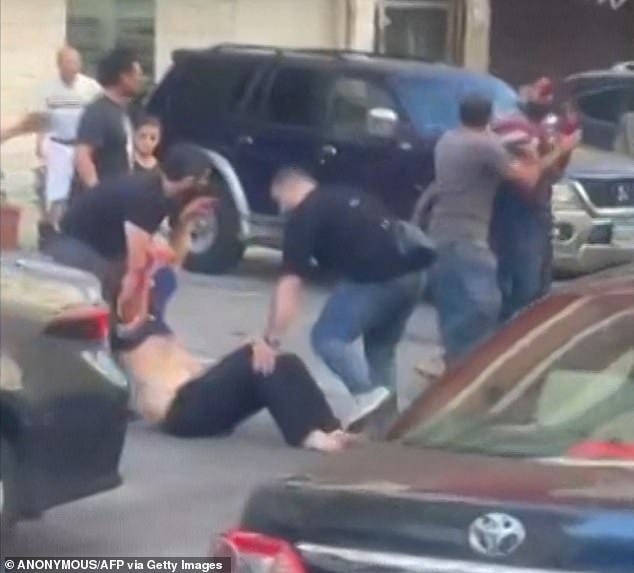


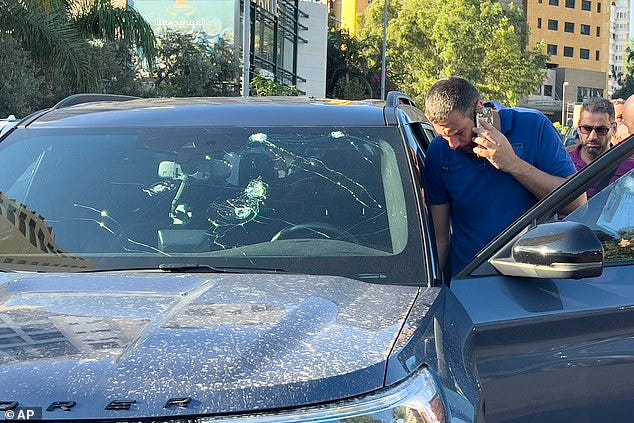




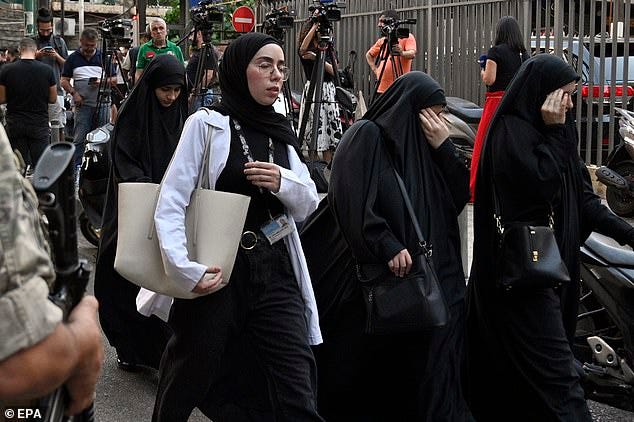
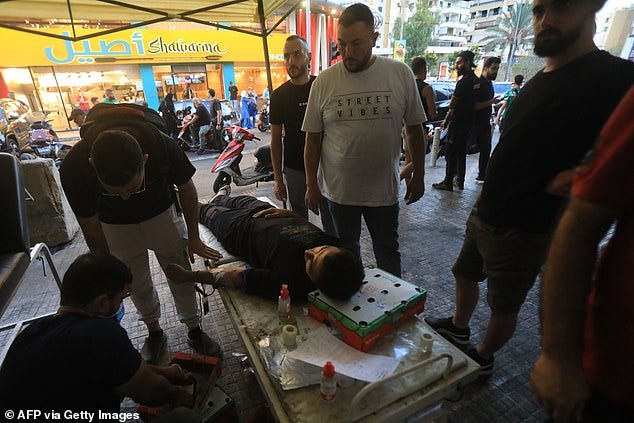

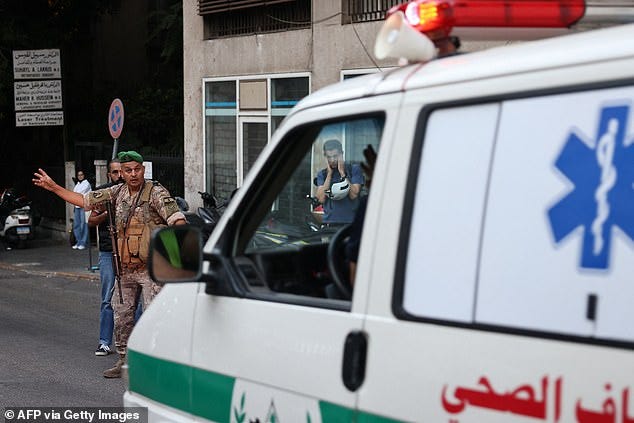
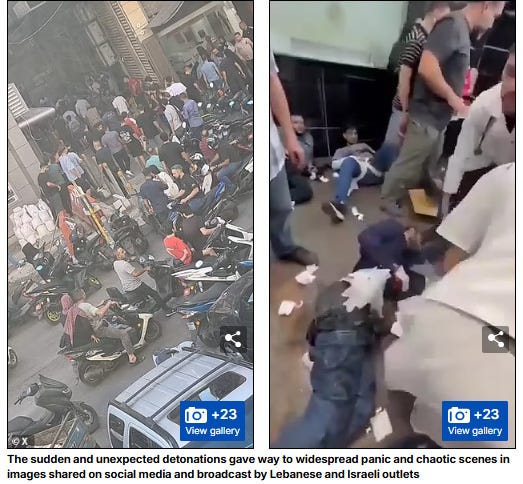
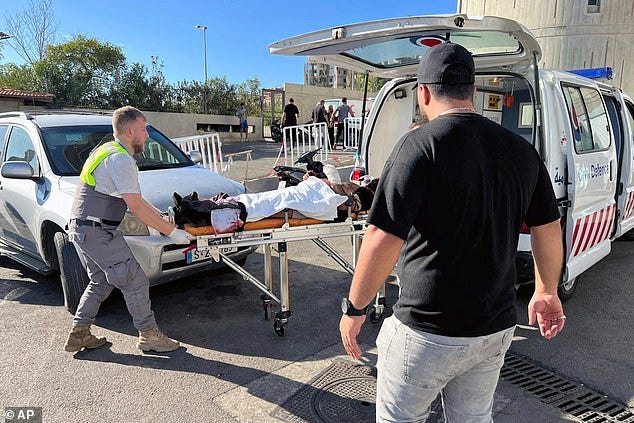
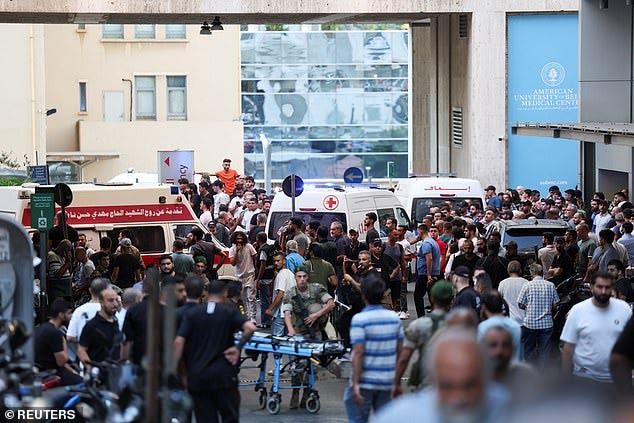
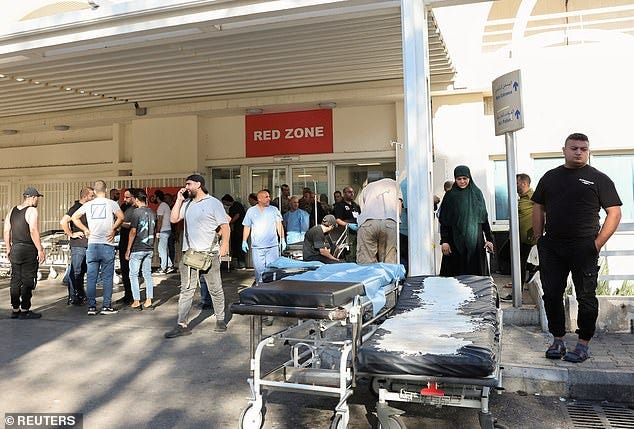
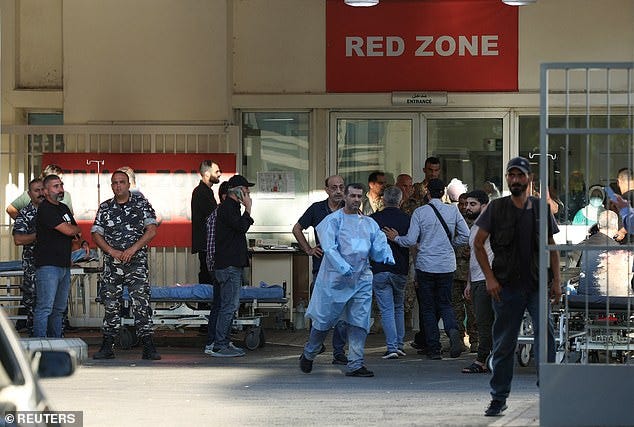


Considering the amount of damage from the explosions, I believe explosives were added. Most cell phones burn up, not explode. However, the potential of 5G and 6G are/will be far more hazardous than their prior generations. Kids with cell phones are insane. Parents are obvious to the daily Hazards of the invisible damage of Microwave Energy.
They're unaware that we live in a WORLD of DECITE, an altered reality provided by the 'CAPTURED' Corporations, Mainstream Media, Academia, Government alphabet Organizations, RINOs and DINOs, and BigTech, matrix: *"a forbidding underworld, 'he' discovers the shocking truth--the life 'he' knows is the elaborate deception of an evil cyber-intelligence." When life is a screen that we gaze into, see a filtered reality, and perceive it as real, we, too, are 'captured' in their manipulative, evil matrix.
*The Matrix 1999 REMASTERED | Mobilarian Forum - Official Symbianize forum.. https://katz.to/threads/the-matrix-1999-remastered-720p.8795/